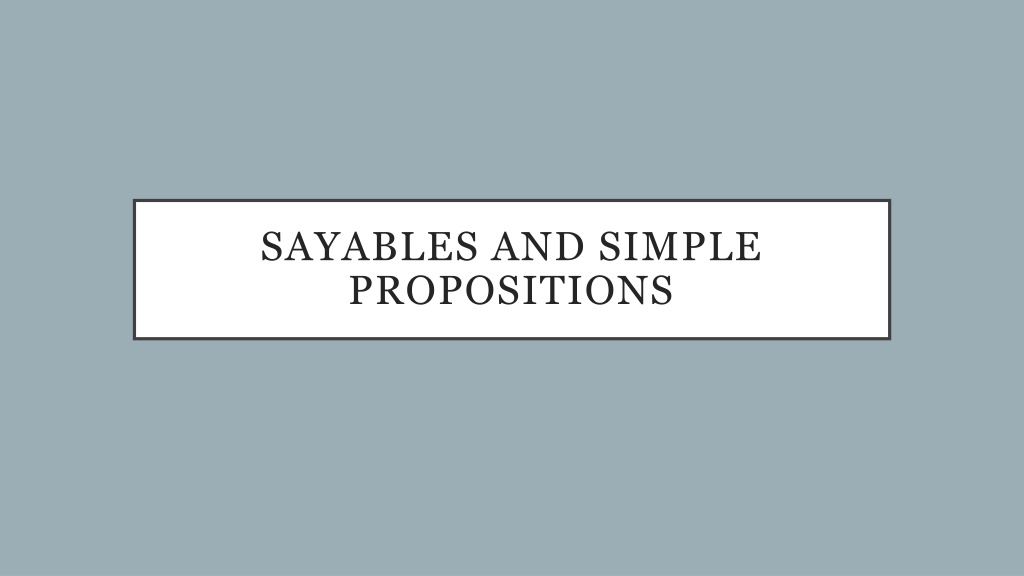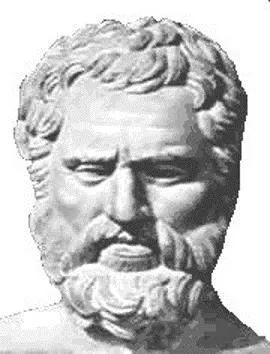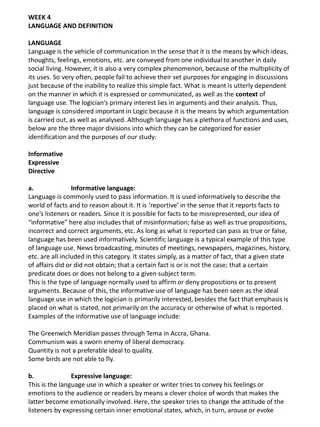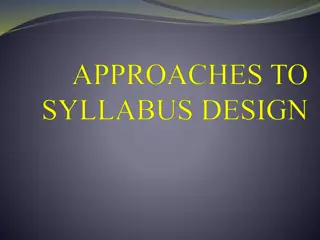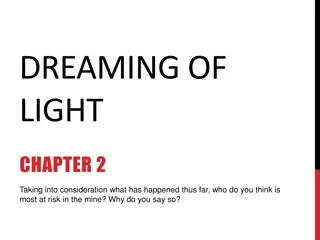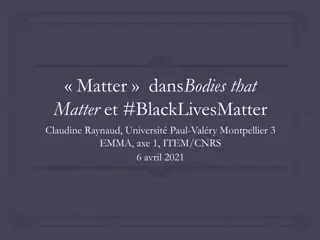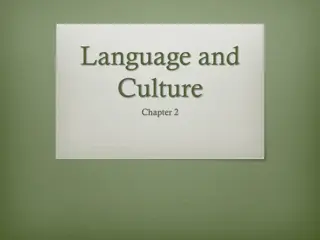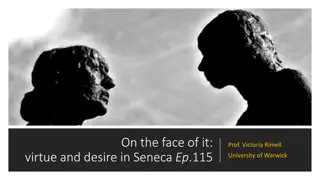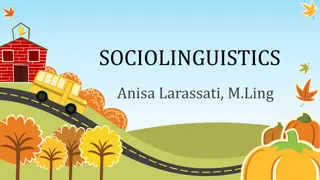Understanding Language in Stoicism: Significance and Corporeality
Language in Stoicism plays a crucial role in the process of assenting to impressions by focusing on corporeality, reason, and truth. It distinguishes between the mundane vocal sounds, articulated speech, and significant language to convey meanings effectively. The significance of language lies not in speech itself, but in the logical conclusions or summaries it represents, allowing for the communication of thoughts among individuals. Stoicism also addresses the concept of corporeality in language, emphasizing the arbitrary distinction between subjects and predicates. Overall, language serves as a tool to convey and receive impressions through significant statements, influencing the way we interpret and communicate thoughts.
Download Presentation

Please find below an Image/Link to download the presentation.
The content on the website is provided AS IS for your information and personal use only. It may not be sold, licensed, or shared on other websites without obtaining consent from the author. Download presentation by click this link. If you encounter any issues during the download, it is possible that the publisher has removed the file from their server.
E N D
Presentation Transcript
SAYABLES AND SIMPLE PROPOSITIONS
LANGUAGE IS CLOSELY CONNECTED WITH STOIC LOGIC AND EPISTEMOLOGY Language is a key part of the process of assenting to impressions, so it has to fit in with the ideas of corporeality, reason, and truth To sort out why language was so important, they had to first separate unimportant language from important, which they called signification
VOICED SOUND VS SPOKEN SPEECH Any vocal sound is an utterance -anything from animal noises to full sentences Utterance that is articulated is speech -includes words, gibberish Speech that is a significant statement is language -full phrases with a subject and predicate 33A
3 THINGS LINKED The signifier - The physical utterance the signification (sayable/ ) - The meaning/state revealed by the utterance The name-bearer - The corporeal body spoken of
THE SIGNIFICANCE ISNT INHERENT IN SPEECH, BUT A SEPARATE THING Because Someone who doesn t speak the language won t receive the meaning All minds are different, and the impressions created by a signification are different for everyone (B2) So The significance is a logical conclusion or summary of the thought, which can be passed from person to person with language
INCORPOREALITY Since language can be false, it can t have a corporeal body If Cato is not walking, the false statement that he is walking cannot have a corporeal entity, the non-walking Cato, as its meaning. Language distinguishes subjects and predicates, and this distinction is arbitrary/doesn t exist in nature -the Stoics don t like incorporeality, so while they can t say that these lekta exist, they place them into the something class
IMPRESSIONS AND THE SIGNIFICATION/SAYABLE/ When an impression arises from outside stimulus, the commanding- faculty will be disposed in a certain way (L&S 200) -the sayable is the correlate of that (corporeal) disposition This sayable can be assented to or not (rationality) This sayable is what we use to form speech to convey that thought
COMPLETE VS INCOMPLETE SAYABLES A complete sayable needs: A nominative (a subject) -The nominative case is the purest form which has fallen upright directly from the thought (33K) The signification of a characteristic, or a predicate, which the Stoics use to mean anything attached to that nominative (33G) Dion writes here is Dion Dion is skinny Proposition like this are the most important, but sayables also include questions, oaths, imperatives 33K
PREDICATES Incorporeal signification of a characteristic (of a body) (28M) predicates aren t something we can have, since they are just something a body is doing: Simon walks nothing here besides Simon -while Simon is a thing, walks doesn t exist anywhere in nature He acts prudently -we can have prudence, but we can t have the acting prudently (33J)
SIMPLE PROPOSITIONS One species of the complete sayable , called , which Long and Sedly translate to proposition A sayable that corresponds to the state of something in nature (34E) Must be true or false (34A, B, C). A proposition either does or doesn t correspond to the natural world Propositions are not locked in time, and because of this they can change from true to untrue - it is day can be true at one time then untrue later, but it is the same axiom/proposition (34J, K)
3 TYPES OF SIMPLE AFFIRMATIVE PROPOSITIONS Definite this one is walking Indefinite someone is walking Intermediate a man is walking Socrates is walking 33H
CONTRADICTIONS From Sextus Empiricus (34G) the contradictories are propositions one of which exceeds the other by a negative It is day , Not: it is day The negative must precede the whole argument, so that it applies to each part
In conclusion, impressions form on our mind from a stimulus. With the power of language, our thoughts extract sayables, or lekta from these impressions, which we can convey to others by voicing these sayables in speech. Regarding simple statements of truth these sayables are called propositions.
